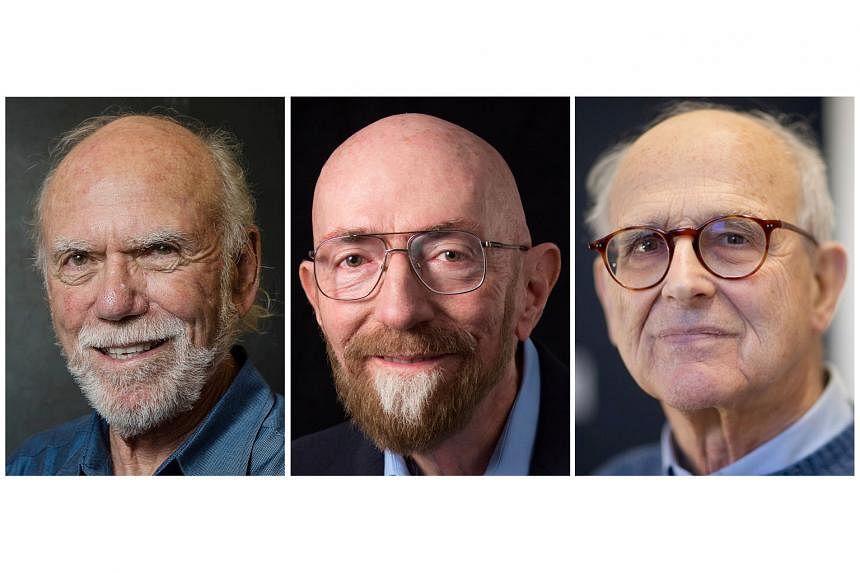STOCKHOLM • American scientists Rainer Weiss, Barry Barish and Kip Thorne have won the 2017 Nobel Prize for Physics for their decisive contributions in the observation of gravitational waves, ripples in space and time foreseen by Albert Einstein a century ago.
"This is something completely new and different, opening up unseen worlds," the Royal Swedish Academy of Sciences said in a statement on awarding the 9 million krona (S$1.5 million) prize. "A wealth of discoveries awaits those who succeed in capturing the waves and interpreting their message."
Measuring gravitational waves offers a new way to observe the cosmos, helping scientists explore the nature of mysterious objects, including black holes and neutron stars. It may also provide insight into the universe's earliest moments.
The first detection of the waves created a scientific sensation when it was announced last year and the teams involved had been widely seen as favourites for the prize.
"This year's prize is about a discovery that shook the world," the Nobel committee said.
Two US-based instruments working in unison, called the Laser Interferometer Gravitational-Wave Observatory, detected the first waves caused by colliding black holes. A European sister facility in Italy, known as Virgo, has also detected waves. Those spotted have come from very distant black holes - extraordinarily dense objects whose existence was also predicted by Einstein - that smashed together to form a single, larger black hole.
Because gravitational waves are radically different from electromagnetic waves such as radio waves, visible light, infrared light and X-rays, they are expected to reveal previously inaccessible features.
"We now witness the dawn of a new field - gravitational wave astronomy," Mr Nils Martensson, acting chairman of the Nobel Committee for Physics, told reporters.
REUTERS, WASHINGTON POST

